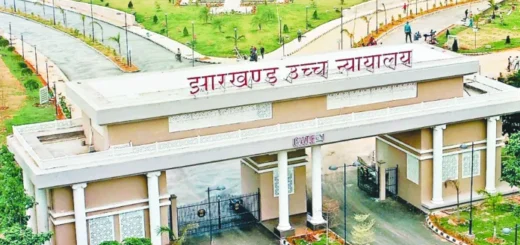The Supreme Court has provided recommendations to the Central Government on how institutions can meet their responsibilities to offer reasonable accommodations for disabled medical students

This came during a civil appeal from a specially abled medical student against the Director General of Health Services. The three-Judge Bench, including CJI D.Y. Chandrachud, Justice J.B. Pardiwala, and Justice Manoj Misra, noted that in the UK, the General Medical Council has released guidance called “Welcome and Valued.” This guidance explains how institutions can fulfill their obligations to support disabled medical students. It includes steps for assisting these students. After assessing their needs and creating a support plan, the guidance suggests the following actions, which may vary in suitability:
- Establishing a support group or a leader to manage accommodations for incoming students with disabilities;
- Designating key contacts for students with disabilities and for each service involved in arranging support;
- Informing students about how their information will be handled while ensuring confidentiality. Additionally, colleges are advised to:
i. Maintain a clear record of decisions made regarding support for disabled students to ensure appropriate measures are taken;
ii. Document all discussions between the support group and the student, agree on how to record these conversations, and allow the student to review a draft of any notes taken.
iii. Create a separate document outlining different access rules for confidential health information that is not part of the general student records. - The lead should then set up a meeting between the student and the support group. The group can also hold meetings to review cases and discuss progress;
- Finally, a decision can be made on whether the student with a disability can receive the necessary support to achieve the goals expected of a medical graduate.
In this situation, the appellant had lower limb myopathy, which is a locomotor disability. He achieved an A1 grade in his Class X and Class XII exams conducted by the Central Board of Secondary Education (CBSE). He aimed to enter the medical field and took the NEET UG Examination 2024 under the unreserved/EWS-PwD category, scoring 601 out of 720. This earned him an all-India PwD rank of 84 and a State PwD rank of 4. Although he had a Disability Certificate valid until 2025, he underwent a required assessment to confirm his eligibility with a designated medical board at AIIMS, Nagpur.
The medical board at AIIMS, Nagpur included an Associate Professor in Physical Medicine and Rehabilitation, an Assistant Professor of Orthopaedics, and a Professor who chaired the Disability Board at AIIMS, Nagpur. The board, based on a NEET Disability Certificate, concluded that the appellant was 88% disabled and deemed him ineligible for the MBBS/Dental course. Upset by this decision, he filed a writ petition with the Bombay High Court, which was dismissed. The appellant then took a crash course in understanding the Indian legal system, covering statutory rules, regulatory guidelines, High Court decisions, disability assessments, and the pursuit of justice before the Supreme Court.
The Supreme Court stated, “A nation cannot truly advance until all its citizens feel they have a role in the shared future. Discrimination, in one way, removes the affected individuals from the nation’s vision. In another way, the nation loses the talents and insights of those who face discrimination. We aim for institutions and systems that showcase the rich diversity of our country. This goal is based on our dedication to the nation. Diverse institutions are essential for governing a diverse society.” The Court emphasized that when people with disabilities face discrimination, it harms not just their personal dreams and dignity but also impacts the entire nation and the shared goal of unity and brotherhood. “Dr. Martin Luther King Jr. famously said, ‘injustice anywhere is a threat to justice everywhere.’ Allowing injustice to happen normalizes the idea that basic rights can be violated. This weakens our collective commitment. Discrimination creates a divide in society, violating the Constitution and undermining the humanity of those affected. It can show itself in direct or indirect ways, damaging our commitment to one another and the State’s duty to its people,” it added. The Court also mentioned that having a clear process to evaluate whether a requested accommodation for a student with a disability imposes an undue burden on the institution is crucial for ensuring transparency and fairness.
Dr. Satendra Singh, in his report from October 20, 2024, proposed several changes: (i) rename Disability Assessment Boards to Ability Assessment Boards to better reflect their purpose; (ii) include a doctor with a disability or one knowledgeable about disability rights on these Boards; (iii) adopt a human rights approach to disability assessments; (iv) provide guidance on clinical accommodations; (v) train the Boards in disability competency assessments; and (vi) utilize Enabling Units as contact points for clinical accommodations. Regarding the inclusion of doctors with disabilities, the first respondent issued a circular on March 24, 2022, requiring this inclusion, which all Boards must follow. The Court instructed the committee to create new guidelines to replace the current ones, ensuring that the government considers the suggestions based on their own merits. The Court emphasized that the recommendations must align with its judgment. Consequently, the Apex Court approved the appeal and overturned the previous judgment.
Cause Title- Om Rathod v. The Director General of Health Services & Ors. (Neutral Citation: 2024 INSC 836)









